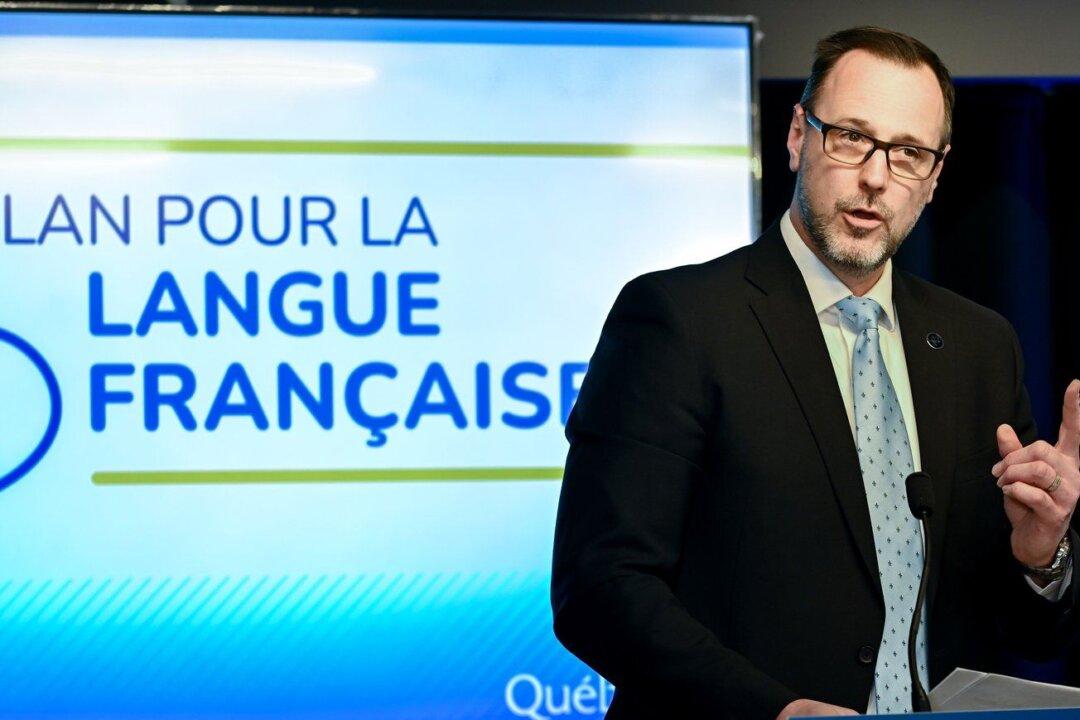Quebec is “going on the offensive” to protect and promote French, Minister Jean-François Roberge said Apr. 28 as he presented a $603-million plan to counter what he described as the language’s decline.
Mr. Roberge, the Quebec cabinet minister responsible for the French language, said the government’s nine priorities include better monitoring of language trends, boosting the French cultural offering and improving students’ mastery of French.





